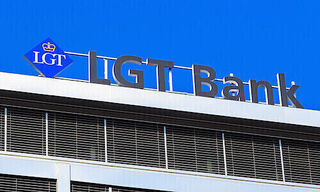Hong Kong’s losses in financial business will continue to be Singapore’s gain in the coming years, according to a white paper by the Economist Intelligence Unit detailing future changes in Asian hubs.
Financial hubs throughout the world, including Asia, are being reshaped by a myriad of factors including geopolitical tensions, regulatory changes and economic shifts.
In a white paper by the Economist Intelligence Unit (EIU) entitled «“The shifts in Asia's financial hubs», key developments were outlined in regional centers including Hong Kong, Singapore and more.
Hong Kong: Diminishing Status
According to the white paper, «Hong Kong is experiencing a significant decline in its stature as one of the world’s foremost financial centers, as its stock market tumbles and economic growth falters».
Issues cited include China’s stringent crackdowns and a trade war with the US, leading to «an exodus of foreign investments and financial experts». China’s economic woes, especially in the real estate and tech sectors, have further undermined Hong Kong’s market which has raised a 20-year low in IPO funds.
«While it may remain an important regional hub, its status as a global financial center will severely diminish over the coming years,» the paper said.
Singapore: Solidified Position
In contrast, Singapore has seen a record amount of private wealth and capital inflows due to its stability and business-friendly, low tax market regime, «benefiting from China’s crackdown on the rival business hub of Hong Kong». Its private markets have also enjoyed success, contrasting with the performance of its stock exchange.
«Singapore will mop up much of the financial business that is leaving Hong Kong,» the paper added.
China Plus On
Singapore isn’t the lone beneficiary of challenges in China. Japan and India have also gained from the so-called «China Plus One» strategy adopted by many investors.
Nonetheless, the two markets also face challenges. Indian equities have significantly higher price-to-earnings ratios than regional peers, posing a risk to future performance. Geopolitical risks loom in Japan through its alliance with Washington and the potential of a more isolationist policy stance depending on the election outcome in November.

























